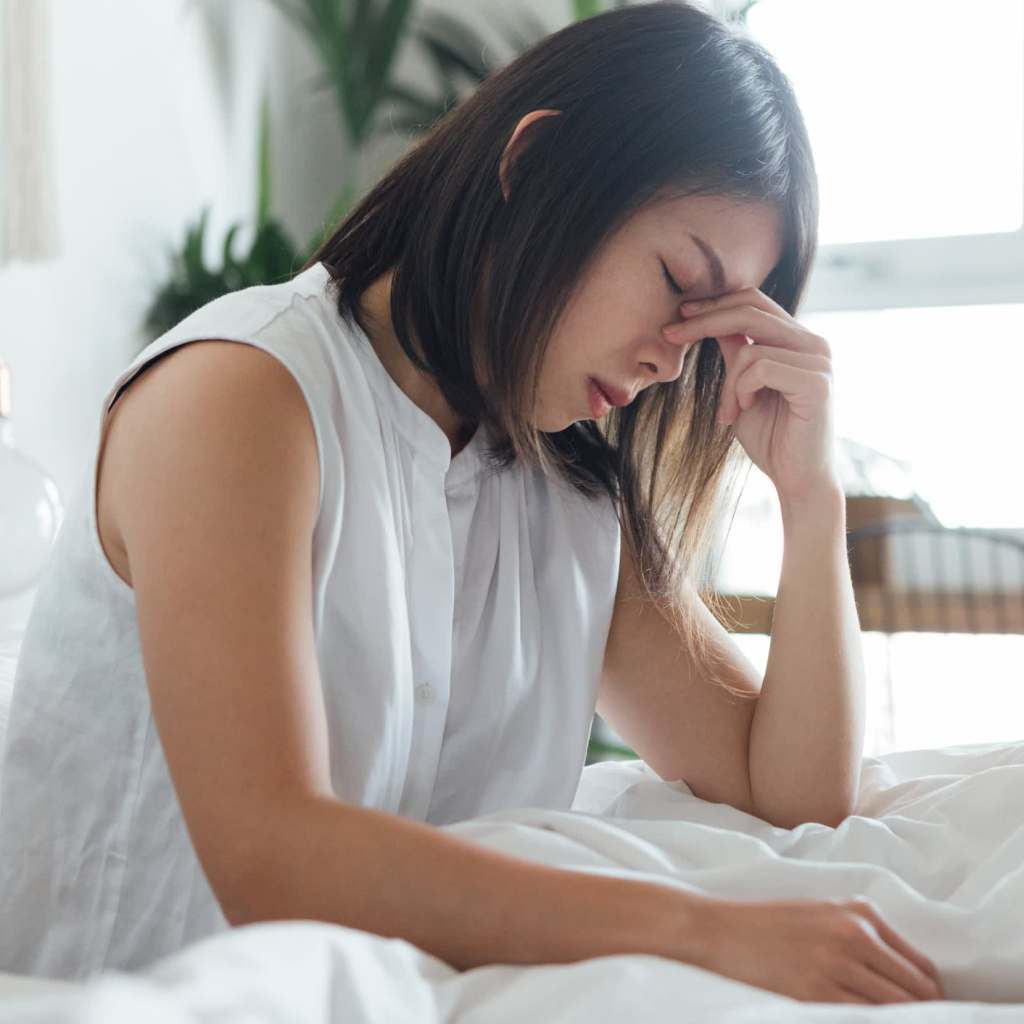When I’m dealing with the incessant throbbing of a horrible headache, there’s really only one thing on my mind: how do I make it stop?
For tips on at least easing the discomfort of a migraine or a really bad headache, I reached out to neurologists for their best suggestions. From lowering the lights in your home to getting the proper amount of shut-eye, check out their helpful suggestions and recommendations below.
Prioritize Sleep
Consider this yet another reason why you should maintain good sleep hygiene. According to Dr. Jocelyn Bear, MD, a board-certified neurologist based in Colorado, restful sleep can help relieve and prevent headaches.
“Get the right amount of sleep – not too little, not too much,” Dr. Bear says. “Go to bed around the same time every night, and wake up around the same time.”
On top of maintaining a sleep schedule, she recommends avoiding naps and using your bedroom for sleeping only – so save the reading for the couch and working on your laptop for a desk or your kitchen table.
Try an Ice Pack
If you’re prone to headaches, keep cold packs stashed in the fridge as a precautionary measure.
“Ice packs are one of the oldest remedies for headache and can be very beneficial,” Dr. Lauren R. Natbony, MD, the assistant professor of Neurology at the Center for Headache and Facial Pain at Mount Sinai, says.
This is because the cold can constrict blood vessels, which helps reduce the transmission of pain signals to the brain – she recommends applying ice for 15-20 minutes at a time to the head or the neck.
Related: Why Do I Wake Up With a Headache?
Reduce Stress
If you typically suffer from tension-type headaches, you already know stress is a trigger. Dr. Bear says that some experience increased “let-down headaches” on weekends after particularly stressful workweeks.
To keep stress at bay, she recommends using meditation or exercise to help you unwind and relax.
Consider Caffeine
Dr. Bear says that caffeine – in small amounts – can be helpful in soothing headache pain. However, changes in caffeine can also cause headaches for some, therefore, it’s not something to rely on. Keeping a headache diary can be helpful in tracking foods that trigger discomfort.
Related: How to Keep a Migraine Diary, According to a Neurologist
Lower the Lights
When I’ve suffered debilitating migraines, one of my first instincts is to lay in a dark room while I wait for the pain to pass. According to Dr. Natbony, migraines are frequently associated with light sensitivity, or what’s called “photophobia.”
“Light itself can actually induce head pain and discomfort and make an existing headache worse,” she says. “The worst offenders tend to be sunlight, fluorescent lighting, and LED and LCD screens from computers or smartphones.”
However, lowering the lights and dimming screens can help decrease the pain signals, hopefully helping pain dissipate faster.
Dr. Bear also suggests avoiding noisy areas that may aggravate pain. Maybe some alone time in a quiet corner of the house is in order?
Ask Your Doctor About OTC Medications
Before taking any OTC meditations for a headache, speak with your doctor to ensure it’s safe for you and doesn’t interfere with any other medication you may be taking.
Dr. Mia Minen, MD, a headache specialist and associate professor of Neurology and Population Health at NYU Langone Health, says that certain nonsteroidal pain relievers – one she recommends is ibuprofen – can help with mild to moderate headaches.
“If NSAIDs are contraindicated, one can try acetaminophen 1,000 mg – but don’t exceed the max doses/day,” she adds.
But again, you’ll want to check in with your doctor first to be safe.
Click here for more health and wellness stories, tips, and news.

